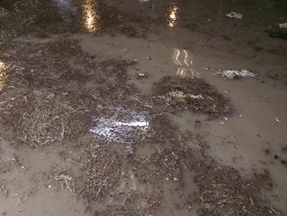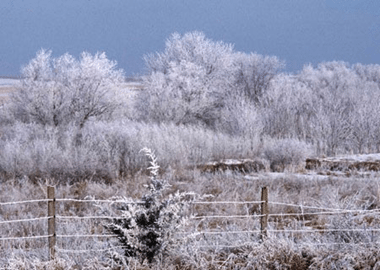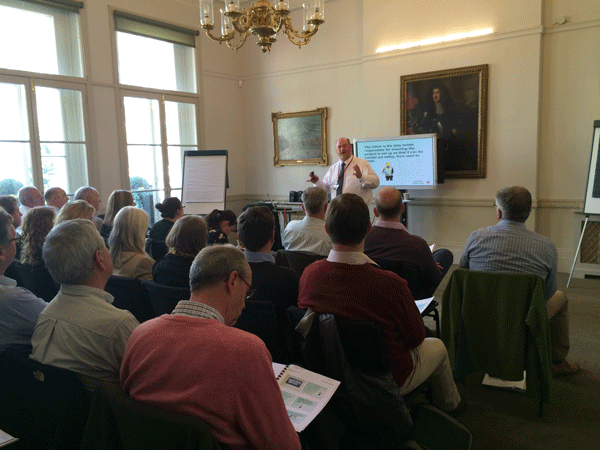Protecting your staff from the risks of winter weather
There have been floods in parts of England and Scotland and now we face the prospect of cold, icy and possibly snowy conditions.
But many of us still require our staff to travel and work in these conditions.
I know we keep mentioning the Duty of Care aspect of legislation in these newsletters, but we cannot place enough importance on the fact that YOU MUST ensure the safety of your staff, whilst they undertake work for you.
It is not just us; it is the whole Health & Safety system that is bringing it to your attention including the HSE.
So this week I thought that I should address this subject and give tips on keeping your staff safe.
This week’s 2 recent HSE cases look at accidents in which the victims suffered serious injuries.
- The 24-year-old from Stockport, who has asked not to be named, sustained several broken bones and had to have his thumb and forefinger amputated.
- Work was carried out by Mark Tucker to refurbish a building block without consulting the Asbestos register.
As ever, if you have a subject that you would like us to cover one week, please contact us by phone 01458 253682, email or via our Facebook page or by Twitter.
Protecting your staff from the risks of winter weather.
Flood-hit Premises: How to keep your staff safe in the aftermath
As widely reported, the north of England and the south of Scotland have been badly affected by floods over the festive period. Some areas of Somerset have also been under water since just after Christmas.
In fact the photograph here is of my own barn (which houses the horses’ stables), taken on 30th of December 2015. A few minutes earlier I was stood there on dry ground with my horse as the farrier was shoeing her. It was raining heavily and the stream next door broke its banks so we had to make a hasty retreat to higher ground. Thankfully the stables themselves were not flooded!
So what are the health risks if your premises have been flooded?
Flood water is likely to contain a number of items that can be harmful to people – there may be dangerous chemicals or substances within it, and also sewage matter. Areas that are covered in water may disguise holes in the ground, so care must be taken when walking through water to avoid falls.
5 Top Tips to Keep Staff Safe after Flooding
- The principles of risk assessment still apply – in this case it will be assessing whether buildings are safe to access in the first instance, and taking advice from the emergency services about safe entry. Consider control measures such as testing the depth of water with a pole before setting foot into areas, and working in pairs or groups in case someone should fall into water unexpectedly.
- Obviously, the main risk is likely to come from the residual water that may be on the premises. Make sure staff have the correct personal protective equipment (PPE), including waterproof rubber boots, coveralls and gloves. Where possible, staff should avoid coming into contact with the water and should always wash their hands to prevent infection.
- Don’t operate gas equipment until it has been declared safe by a Gas Safe engineer. Get the electrics checked by a competent electrician. Don’t touch any electrical source if standing in water.
- You need to ensure there is adequate ventilation within the premises if you use heaters to dry the inside of buildings. Don’t use anything powered by petrol or diesel indoors. Mind any trailing cables that could become a trip hazard, and keep flammable substances such as paper or cardboard away from heaters.
- Rats can often leave their habitat when it becomes flooded and they may look for an alternative dwelling. Be careful of rat droppings and urine which can spread disease. Keep cuts covered with plasters and avoid coming into contact with any water in the vicinity if rats are suspected to have been nearby.
Cleaning up after a flood can be a tiring and painstaking process – make sure that your staff stay safe in the process, so that everyone can return to work as soon as possible to get on with the day job.
Winter warnings
Of course flooding is one thing but I now see that the forecasters are talking about the potential of Ice, sleet and snow! Please see the BBC’s Louise Lear give her forecast for this week:

So there may be snow to come – are you prepared?
 The Health and Safety Executive (HSE) is offering some timely guidance to ensure workers remain safe during the colder, darker months ahead.
The Health and Safety Executive (HSE) is offering some timely guidance to ensure workers remain safe during the colder, darker months ahead.
HSE advice is:
For those workings outdoors, the winter months bring additional challenges to keeping safe. Cold weather and shorter periods of daylight mean there is more potential for accidents to happen. With a little planning, and common sense, these can be avoided.
Operators of construction plant, such as diggers, tele-handlers, cranes etc. must ensure they regularly clean their windows so they can safely see all around. This should be combined with constant use of mirrors and a Banksman where appropriate.
Lights on all vehicles should be cleaned regularly to ensure vehicles are visible at all times, and vehicle depots should be well lit to avoid slip and trip hazards – workplace transport accidents account for many of the deaths and injuries we investigate every year.
Farms and other outdoor enterprises must always ensure they have a suitable, robust procedure in place to make sure lone workers are safe. In winter this is even more vital – if a worker fell and broke a leg in a remote location in the dark, how would they summon help? And who would be responsible for ensuring they had returned home safely at the end of the day? Recent cases, including the tragic death of a gamekeeper have highlighted the vital importance of ensuring lone workers are protected and have the communications they need.
Companies have a responsibility to provide adequate welfare facilities:
- In winter it is important to ensure that water supplies do not freeze and that any gas heaters provided have adequate ventilation – Carbon Monoxide is a silent killer.
- Where appropriate provision should be made for drying rooms for wet clothing; and hot water for washing is even more important than usual.
- Portable chemical toilets should only be used to support workers for short duration.
- People who are exposed to vibration from power tools should improve their blood circulation by keeping warm and dry, where necessary wearing gloves, a hat, waterproofs and heating pads if available. Stopping smoking improves blood circulation, as does massaging and exercising fingers during work breaks.’
Our message this week is to ensure you do everything ‘reasonably practicable’ to ensure the safety and welfare of your staff, make sure you complete adequate risk assessments, put a procedure in place to check on any lone workers, THINK carefully – ‘is it necessary for the job to be done’.
Obviously there will be lots of jobs that will require your staff to ‘brave the elements’; you just have to do your bit to ensure they are safe.
Always remember we are here to help you with your compliance.
If you have any queries on this or any safety matter then contact Jon Wilkins on 01458 253682 or by email.
Training Courses
We shall be running new courses again in 2016 and the dates and details of forthcoming courses will be published here each week.

But remember we are still available for running “In House” courses and we have now also added a new training service for our customers.
Site Manager Safety Training Scheme
(Part of Construction Skills “Site Safety Plus” Suite of Courses)
We have formed an association with a local company TQ Excel who are one of the UK’s leading providers of accredited training to the highways sector of the construction industry.
As a result of this we can now offer the SMSTS (Site Management Safety Training Scheme).
The Site Management Safety Training Scheme forms part of the Construction Skills (CITB) Site Safety Plus range of courses which are highly regarded within the construction industry.
The 5 day training course is aimed at site managers wishing to develop a more in depth legal, moral and social understanding of their role and also teaches delegates how to manage on-site health and safety in accordance with current legislation.
We also offer the 2 day SSSTS Training Course (Site Supervisor Safety Training Scheme) which is a 2 day course aimed at those with on-site supervisory responsibilities.
We also can now offer NRSWA courses.
These qualifications are for those involved in the Excavation and Re-instatement of the highway and are specified under theNew Roads and Street Works Act 1991. They are a legal requirement for “statutory undertakers” (i.e. Utility Contractors) and for those working under “section 50 licenses” (Drainage works etc).
Where works are subject to the Act there must be a minimum of 1 qualified operative on every site that is qualified for the operations being carried out and there must be a Supervisor available to visit the site at least on a daily basis.
The qualifications are also often specified by client organisations and local authorities when appointing contractors for works involving excavation or reinstatement of the highway for other purposes.
The first of these courses is the SMSTS (Site Management Safety Training Scheme)
Start Date: Monday, 18 January 2016
Finish Date: Friday, 22 January 2016
Location: Somerset
Cost £495 + VAT
If you have any questions about these courses or any other training or would like us to run a particular course for you, call Jon Wilkins of the Wilkins Safety Group on 01458 253682 or email him.
Your business is safer in our hands
